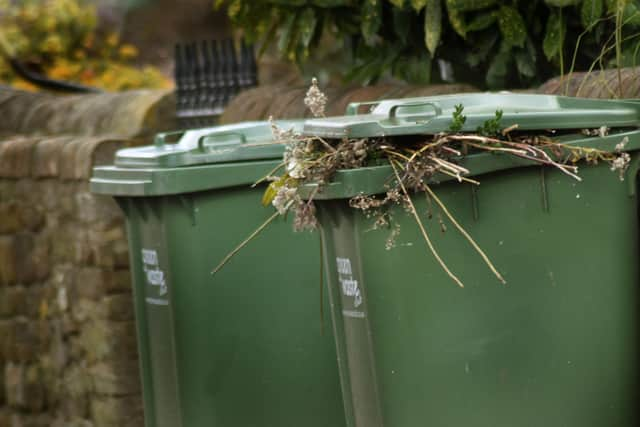Here’s why making green waste collections free in East Sussex is being objected to
and live on Freeview channel 276
The proposals come as part of the Environment Bill 2021, a piece of legislation currently going through parliament intended to bring in new environmental protections.
As part of the wider bill, the government is looking to standardise waste and recycling collections across the country by the end of 2023.
Advertisement
Hide AdAdvertisement
Hide AdThese proposals were discussed on Friday (July 2) by the Joint Waste and Recycling Committee, which is the group responsible for overseeing the joint waste contract between Hastings, Rother and Wealden councils.


While the committee did not disagree with all the proposals put forward on waste collections, there were several which saw concerns raised.
These included making garden waste collections free for residents, for councils to introduce separate food waste collections and for Tetra Pak cartons to be recyclable across the country.
The committee heard how there were a number of practical concerns around each of these proposals as well as the likelihood of a significant impact on the cost of waste collections.
Advertisement
Hide AdAdvertisement
Hide AdHowever, the committee was also keen to stress how some of the objections were nuanced; particularity around areas such as separate food waste collections, where it considered the environmental drawbacks narrowly outweighed the benefits.
Speaking about the garden waste collections, Hastings councillor Peter Chowney (Lab) said: “Collecting garden waste free simply discourages people from home composting.
“Home composting is zero carbon and as soon as you start collecting and lugging it off somewhere else you have that contribution of fossil fuels. It is worse than home composting.
“I would add that this is all going to be paid for somehow. Whether by the government subsidising councils or by councils themselves, it is all paid by taxpayer money.
Advertisement
Hide AdAdvertisement
Hide Ad“It simply means that people who live in flats and don’t have gardens, who generally tend to be poorer overall subsidising richer people. I think it is retrograde step, both in socio-economic ways and climate change ways as well.”
Similar views were raised by Rother councillor Eleanor Kirby-Green (Con), who said: “People who have the benefit of a garden, at the moment we charge them.
“I don’t think people in flats, who don’t have the benefit of a garden, should be subsidising garden waste collections. It would cost the council an awful lot of money if we started giving free garden waste.
“Regarding the food [waste collections] it is exactly the same point. In actual fact, if you are going to send more lorries out to collect the food waste, i’m not sure what the benefit is.”
Advertisement
Hide AdAdvertisement
Hide AdAs well as putting forward its opposition in response to a consultation on the bill, the committee also resolved to raise its concerns with both local MPs as well.
Despite this, the committee also resolved to begin planning for the financial implications of making changes by 2023.
Joint Waste Partnership Manager Madeleine Gorman said: “All of these changes will have significant financial implications for each of the partner councils and indeed, potentially, the contract.
“As a joint waste group, we will need the support of our finance colleagues and resources to diligently assess what those financial impacts will be in due course and make sure we are prepared for when the changes need to be implemented.”